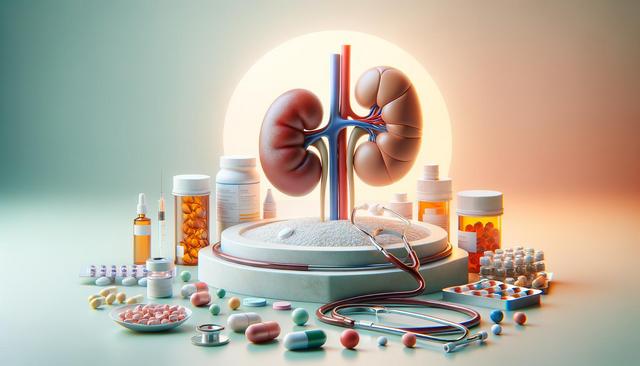What is Kidney Disease and Why Treatment Matters
Kidney disease occurs when the kidneys lose their ability to filter waste and excess fluids from the blood efficiently. This condition can develop gradually over time, often progressing without noticeable symptoms until significant damage has occurred. Chronic kidney disease, or CKD, is a long-term condition that can lead to kidney failure if not properly managed. Early diagnosis and timely kidney disease treatment are crucial to slowing the progression of the illness and maintaining kidney health.
Chronic kidney disease is typically diagnosed through blood and urine tests, imaging, and sometimes kidney biopsies. Once identified, the focus shifts to preserving kidney function and preventing complications. Common causes of CKD include diabetes, high blood pressure, and certain genetic disorders. The importance of appropriate treatment cannot be overstated, as untreated CKD significantly increases the risk of heart disease, stroke, and other serious conditions.
Treatment Options for Chronic Kidney Disease
There are several approaches to kidney disease treatment, depending on the stage and underlying cause of the condition. For early stages of chronic kidney disease, lifestyle changes and medications are often sufficient to manage symptoms and slow progression. The main treatment goals are to:
- Control blood pressure and blood sugar levels
- Reduce protein in the urine
- Manage cholesterol levels
- Address anemia and bone disease
In more advanced stages, patients may require additional interventions such as dialysis or a kidney transplant. Dialysis performs the kidney’s filtering functions artificially, while transplantation offers a long-term solution for those eligible. Each treatment pathway has its own considerations, and decisions are typically made in consultation with a nephrologist based on individual health status and preferences.
Emerging Therapies and New Kidney Drug Developments
Recent advances in medical research have led to the development of promising new kidney drug options aimed at improving outcomes for those with chronic kidney disease. These therapies target specific mechanisms involved in kidney damage, such as inflammation, fibrosis, and oxidative stress. Some of the newly approved medications have shown encouraging results in slowing disease progression and reducing cardiovascular risk in individuals with CKD.
Innovative drugs are also being tailored for patients with diabetes-related kidney disease, offering additional tools to manage both conditions simultaneously. While not a cure, these medications represent a significant advancement in kidney disease treatment by helping to preserve kidney function and enhance overall quality of life. Ongoing clinical trials continue to explore more targeted therapies with fewer side effects.
Supporting Kidney Health Through Lifestyle Choices
Alongside medical treatment, maintaining kidney health requires a commitment to healthy lifestyle habits. These choices can have a significant impact on slowing the progression of chronic kidney disease and preventing complications. Key recommendations include:
- Eating a balanced, low-sodium diet
- Staying physically active with regular exercise
- Limiting alcohol and avoiding tobacco
- Managing stress effectively
- Staying hydrated but avoiding excessive fluid intake
Patients are often referred to a dietitian to help create a kidney-friendly meal plan, especially when managing other conditions like diabetes or hypertension. Routine monitoring of kidney function, blood pressure, and other health indicators is also essential to adapt treatment plans as needed and ensure optimal outcomes.
Working with Healthcare Providers for Comprehensive Care
Successfully managing chronic kidney disease involves a team-based approach. Nephrologists, primary care physicians, dietitians, and pharmacists all play a role in delivering comprehensive care. Open communication and regular follow-ups enable healthcare providers to adjust treatment strategies and address any new symptoms or concerns promptly.
Patients are encouraged to be proactive in their care by:
- Keeping track of their lab results
- Adhering to prescribed medications and dietary guidelines
- Notifying their doctors about any changes in symptoms
- Discussing new or alternative treatment options, including any new kidney drug that may be appropriate
Education and support groups can also empower patients to better understand their condition and connect with others facing similar challenges. The goal is to enhance not only kidney health but also overall well-being through informed and engaged healthcare participation.
Conclusion: Taking Charge of Kidney Health
Kidney disease treatment is a multifaceted process that requires both medical intervention and personal commitment. With new kidney drug developments, improved diagnostic tools, and a growing emphasis on lifestyle management, individuals with chronic kidney disease have more resources than ever to maintain their kidney health. By working closely with healthcare professionals and staying informed about the latest treatment strategies, patients can take meaningful steps toward preserving kidney function and improving their quality of life.




Leave a Reply